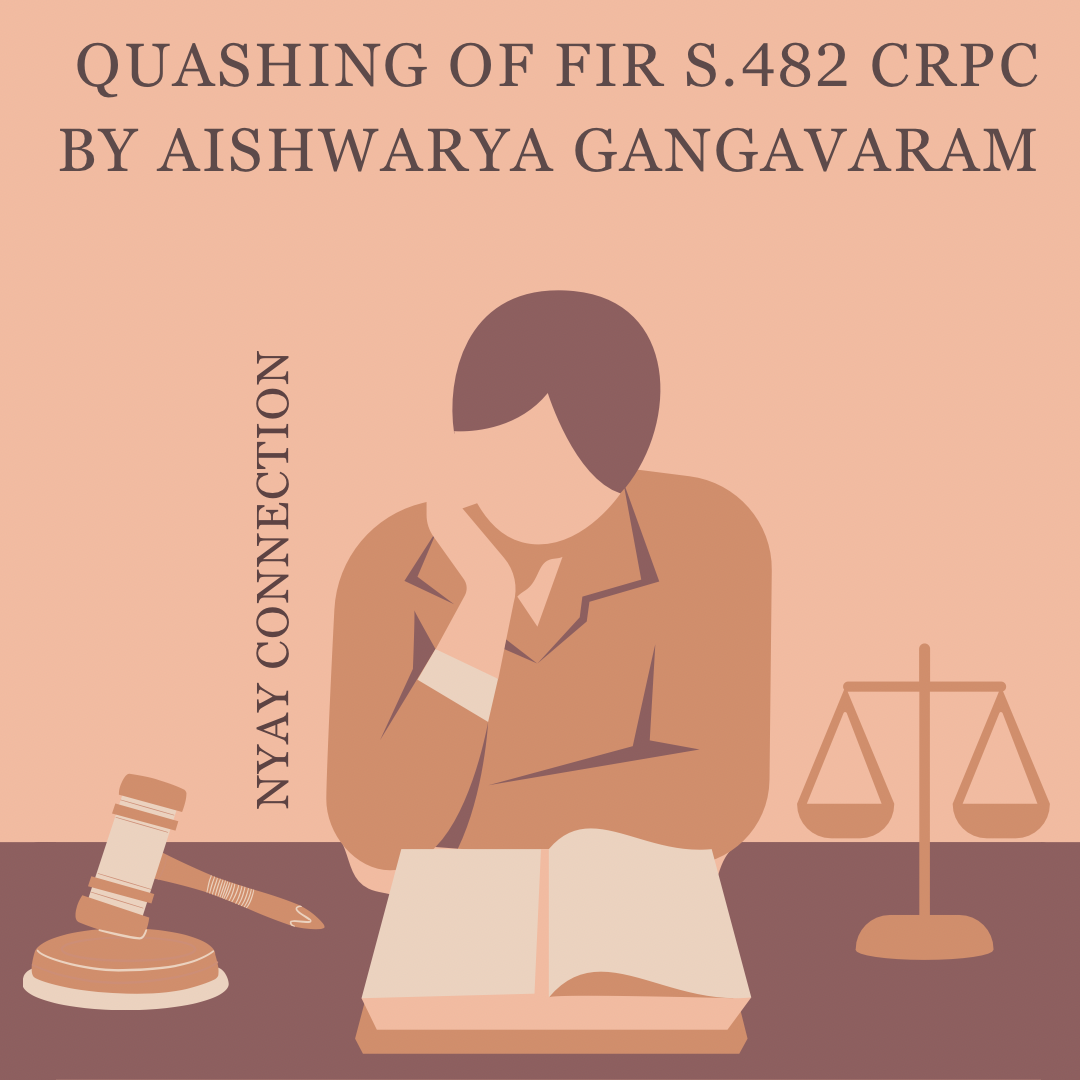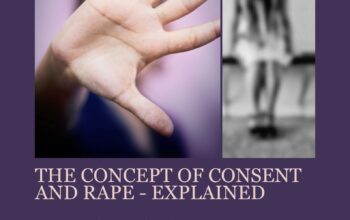INTRODUCTION:
Definition of quashing u/s 482 CrPC 1973 :
Quashing u/s 482 CrPC 1973 refers to the inherent powers of the High Court to dismiss or terminate criminal proceedings against the accused pending before any subordinate court within its jurisdiction. Section 482 of the Code of Criminal Procedure, 1973, empowers the High Court to make orders necessary to prevent abuse of the process of any court or to secure the ends of justice.
Importance of Section 482 of the Code of Criminal Procedure :
Section 482 of the Code of Criminal Procedure is crucial for protecting the rights of individuals who are accused of committing any offence. It ensures that no person is unnecessarily harassed or put to trouble by frivolous or baseless criminal proceedings. The section gives the High Court wide and unfettered powers to quash criminal proceedings and this power is used to prevent the abuse of the process of law and to secure the ends of justice.
Purpose of the article:
The purpose of this article is to provide an overview of quashing u/s 482 CrPC 1973. It will explore the inherent powers of the High Court under Section 482, the grounds for quashing proceedings, and the limitations on the power to quash. The article aims to educate readers on the importance of Section 482 and how it ensures that justice is not only done but also appears to be done.
INHERENT POWERS OF THE HIGH COURT UNDER SECTION 482 CRPC:
1. Wide and unfettered nature of the inherent powers:
The inherent powers conferred upon the High Court under Section 482 of the Code of Criminal Procedure are wide and unfettered. These powers are not limited by the other provisions of the Code and are available to the High Court at any stage of the proceedings, including pre-trial, trial, or post-trial stages. The purpose of these inherent powers is to do complete justice in cases where it is necessary.
2. The principle of justice should not only be done, but it should also appear to be done:
The principle of justice not only being done but also appearing to be done is an important guiding principle for the exercise of the inherent powers of the High Court under Section 482. The High Court should use its powers to prevent abuse of the process of law or to secure the ends of justice, so that the confidence of the people in the judicial system is maintained.
3. Grounds for quashing proceedings under Section 482:
The grounds on which the High Court can quash proceedings under Section 482 are not limited, and the Court has wide discretion in this regard. Some of the grounds for quashing proceedings include:
(i) Absurd and inherently improbable allegations
In the case of State of Haryana v. Bhajan Lal, the Supreme Court held that where the allegations made against the accused are absurd or inherently improbable and cannot be sustained, the proceedings can be quashed under Section 482. For example, if the allegations are of such a nature that no reasonable person would believe them to be true, the High Court can quash the proceedings.
(ii) Defects in the procedure followed by the lower court
If there are serious defects in the procedure followed by the lower court or if the procedure was not followed in the manner prescribed by law, the High Court can quash the proceedings under Section 482. For example, if the accused was not given a fair hearing or if there was a violation of the principles of natural justice, the proceedings can be quashed.
(iii) Violation of principles of natural justice
If the principles of natural justice have been violated, the High Court can quash proceedings under Section 482. For example, if the accused was not given an opportunity to be heard or if the accused was not given a fair trial, the proceedings can be quashed.
(iv) Vexatious or oppressive prosecution
If the prosecution is vexatious or oppressive, or if it is an abuse of the process of the court, the High Court can quash the proceedings under Section 482. For example, if the prosecution is initiated with a malicious or frivolous intention or if it is aimed at harassing the accused, the proceedings can be quashed.
(v) Cases initiated with an ulterior motive
If the case has been initiated with an ulterior motive or if it is politically motivated, the High Court can quash the proceedings under Section 482. For example, if the case is initiated to settle personal scores or to gain political mileage, the proceedings can be quashed. The High Court has wide discretion in determining whether to quash proceedings under Section 482. The power to quash is to be exercised sparingly and cautiously and only in cases where it is necessary to prevent abuse of the process of the court or to secure the ends of justice.
Overall, the grounds for quashing proceedings under Section 482 are very broad and are not limited to the above examples. The Court has wide discretion in determining whether to quash proceedings or not, and this power is exercised sparingly and cautiously.
LIMITATIONS ON THE POWER TO QUASH PROCEEDING UNDER SECTION 482:
1. Importance of using the power to quash sparingly and cautiously
The power to quash proceedings under Section 482 is a very wide and unfettered power, but it is important to use this power sparingly and cautiously. The court must be satisfied that the ends of justice require the quashing of proceedings.
2. Caution against circumventing the normal process of law
The High Court should not use the power to quash proceedings as a shortcut to circumvent the normal process of law. The power should be used only in exceptional cases where the continuation of the proceedings would be an abuse of the process of the court or where the ends of justice require the quashing of the proceedings.
3. Caution against interfering with the investigation or trial of criminal cases
The High Court should be cautious not to interfere with the investigation or trial of criminal cases. The court should not interfere with the investigation or trial unless it is necessary to prevent abuse of the process of the court or to secure the ends of justice.
The power to quash proceedings under Section 482 is a very important that allows the High Court to prevent abuse of the process of the court and to secure the ends of justice. However, this power should be used sparingly and cautiously and only in exceptional cases where it is necessary to do so. The court should be cautious not to interfere with the normal process of law and should ensure that the investigation or trial of criminal cases is not unduly hindered.
CONCLUSION:
1. Recap of the inherent powers of the High Court under Section 482
In conclusion, Section 482 of the Code of Criminal Procedure grants the High Court inherent powers to quash criminal proceedings to prevent abuse of the process of the court and to secure the ends of justice. These powers are wide and unfettered but should be used sparingly and cautiously.
2. Importance of balancing the power to quash with caution and careful consideration
While the power to quash proceedings is an important safeguard against abuse of the process of the court, it must be balanced with caution and careful consideration. The High Court should not use this power to circumvent the normal process of law or to interfere with the investigation or trial of criminal cases. It should be used only in exceptional cases where the continuation of the proceedings would be an abuse of the process of the court or where the ends of justice require the quashing of the proceedings.
3. The role of Section 482 in ensuring justice is not only done, but it also appears to be done
Section 482 plays an important role in ensuring that justice is not only done, but it also appears to be done. It provides a mechanism for the High Court to prevent abuse of the process of the court and to secure the ends of justice. However, the High Court should exercise its inherent powers with caution and careful consideration, so as not to undermine the rule of law or the normal process of law. The power to quash proceedings under Section 482 is an important safeguard against abuse of the process of the court, and it must be exercised judiciously and with great care to ensure that the ends of justice are served.
This article is written by Aishwarya Gangavaram. Aishwarya is a law student from Padala Rama Reddi Law College, Hyderabad. For feedback relating to this article, you may email her at gvaishwarya08@gmail.com.
If you are also a law student or professional and wish to contribute to this website, you may submit your article at nyayconnection@gmail.com.




